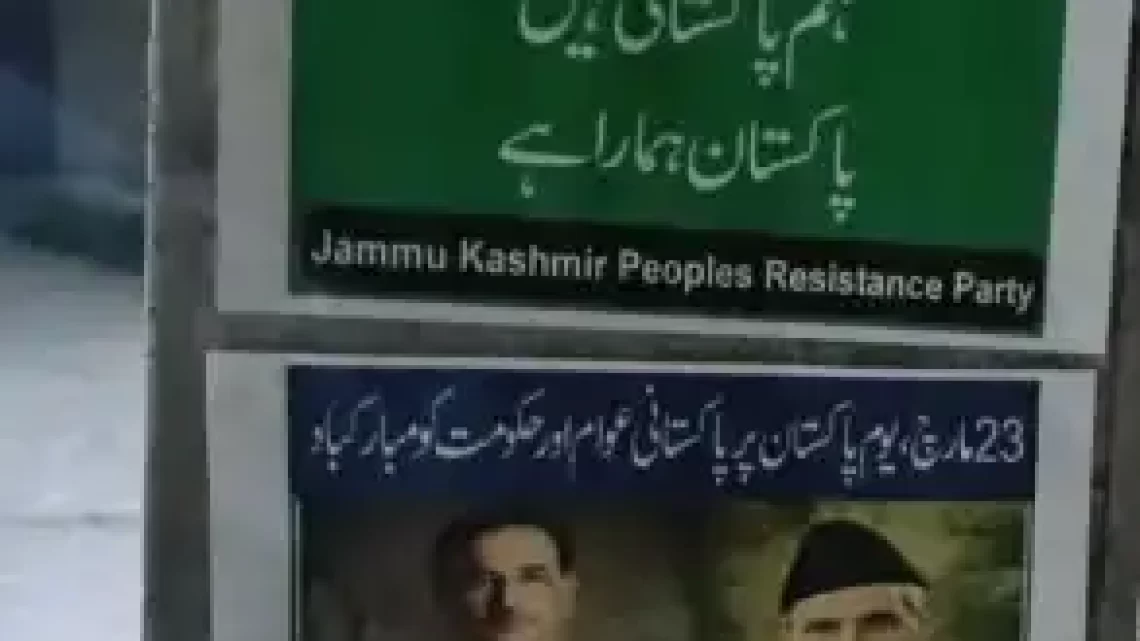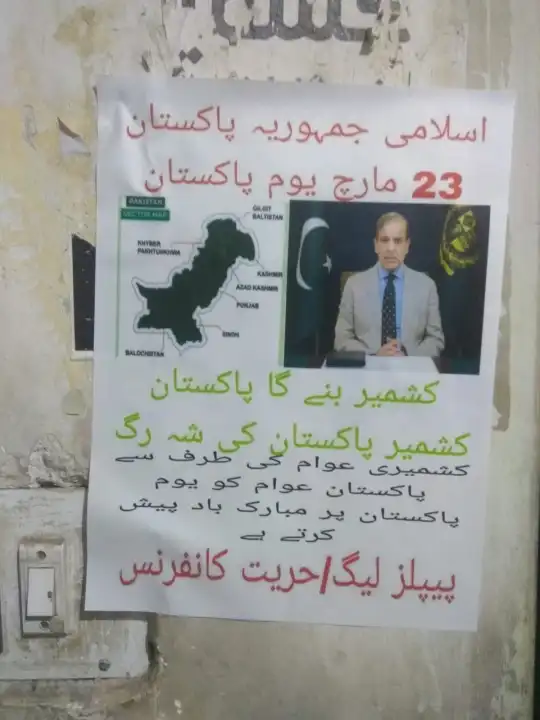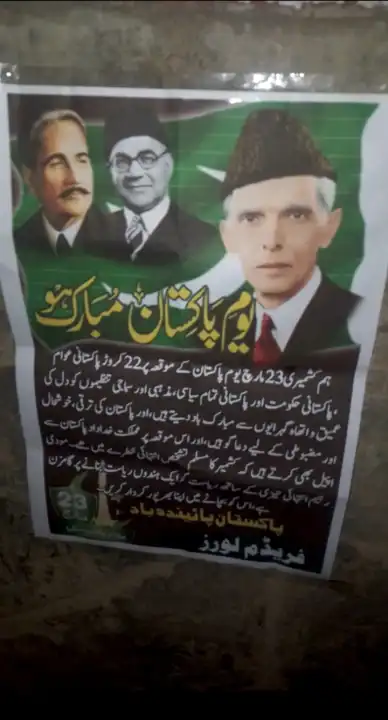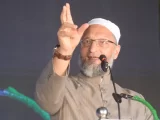
Posters in Kashmir: Calls for Freedom and Solidarity with Pakistan
March 22, 2024Posters expressing solidarity with Pakistan and demanding freedom from Indian occupation have resurfaced in Srinagar and other parts of Indian-administered Jammu and Kashmir, coinciding with the approaching Pakistan Day celebrations on March 23.

Various political parties and groups, including the All Parties Hurriyet Conference (APHC), Jammu and Kashmir Peoples League, Jammu and Kashmir Political Resistance Movement, and others, have reportedly displayed these posters. The appearance of these posters underscores the continued resonance of the sentiment for freedom among Kashmiris, despite the heavy military presence and restrictions in the region.

The posters prominently feature the iconic slogan coined by the late veteran Hurriyat leader, Syed Ali Gilani, “Hum Pakistani Hain, Pakistan Hamara Hai” (We are Pakistanis, Pakistan is ours), reflecting a deep-seated affiliation with Pakistan among a significant segment of the Kashmiri populace. Additionally, phrases like “Kashmir is the jugular vein of Pakistan” further emphasize the emotional and historical ties between Kashmir and Pakistan.
Images of prominent Pakistani leaders, including Quaid-e-Azam Muhammad Ali Jinnah, Allama Muhammad Iqbal, Liaqat Ali Khan, and Army Chief General Syed Asim Munir, adorn the posters alongside the Pakistani flag, symbolizing solidarity with Pakistan on its national day.

The posters also convey strong messages calling for an end to Indian occupation and asserting Kashmir’s rightful place within Pakistan. Expressions such as “People of Jammu and Kashmir demand an end to Indian illegal occupation and want freedom,” “Go India Go Back,” and “Jammu and Kashmir is part of Pakistan” echo the longstanding aspirations of Kashmiris for self-determination and liberation from Indian rule.
Amidst escalating tensions and ongoing human rights violations in the region, the posters serve as a reminder of Kashmiris’ unwavering commitment to their cause. Despite facing militarization and suppression, Kashmiris continue to assert their right to freedom and self-determination.
Moreover, the posters extend a call for collective action against Indian occupation, highlighting the need for solidarity and support from the international community in addressing the longstanding Kashmir conflict.

The widespread dissemination of these posters on social media platforms like Facebook and Twitter amplifies their reach and impact, enabling Kashmiris to connect with a global audience and garner support for their cause beyond regional borders.
In summary, the reappearance of these posters in Kashmir underscores the enduring struggle of the Kashmiri people for freedom and their deep-seated affiliation with Pakistan, while also serving as a rallying cry for international attention and support in resolving the protracted Kashmir conflict.

